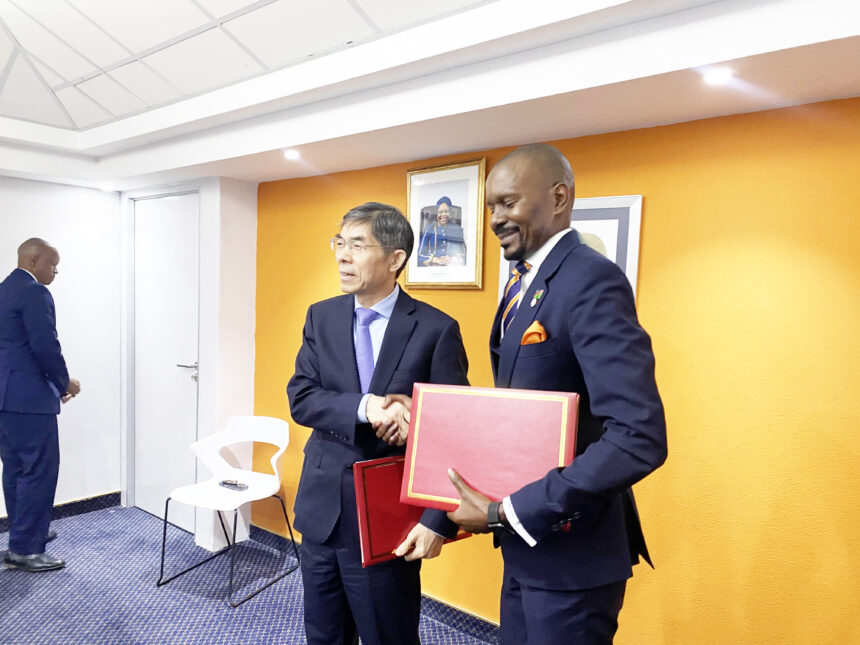In the ongoing United States-China trade war, Chinese customs officials revealed new developments that emphasise the rising tensions between the two global economic giants.
Wang Lingjun, China’s vice minister of the general administration of customs, last week confirmed that the Asian giant has taken decisive steps in response to Trump’s trade tariffs by pointing out the importance of capable technology to process eligible goods.
Wang was speaking at the signing of Memorandum of a Understanding (MoU) with the Namibia Revenue Agency (NamRA) last week, and pointed out that current US technological infrastructure is not yet capable of processing the large volumes of tariff-eligible shipments.
Last week’s MoU is aimed at enhancing bilateral cooperation in customs operation. The agreement, signed by NamRA’s commissioner Sam Shivute, was formalised during a ceremony held in Windhoek on Thursday.
Wang emphasised that China has taken decisive action against the United States as a countermeasure to recent US trade policies.
“This shows the importance of technology use in Chinese customs. What we did was simply respond in our own way. What China did was to protect ourselves and protect the globe,” said Wang.
The trade dispute stems from a broad-based tariff increase implemented in April by US president Donald Trump, who imposed duties of up to 145% on Chinese imports. In retaliation, China announced a 125% tariff on goods originating from the United States. The tit-for-tat measures have severely disrupted trade flows between the two countries, causing a decline in bilateral trade volumes and severely impacting global trade patterns.
Despite Trump’s decision to pause certain tariffs for 90 days, this reprieve excluded Chinese goods, leaving trade barriers and tensions firmly in place.
Tarrifs are defined as taxes charged on goods bought from other countries. These tarrifs can be used to influence trading partners, raise revenues, or protect compitetive advantages.
The US and China were scheduled to start negotiations late last week in Switzerland. However, there is no indication of when the talks will come to an end, or if they will be fruitful.
Meanwhile, the US and the United Kingdom last week signed an agreement, although trade between the two countries is currently minimal at best, comprising around 3% of total US trade. However, Trump attempted to trump the significance of the UK deal, noting that it will be “the first of many.” Part of the “deal” is a 10% tariff on UK imports that will remain in place. However, UK cars will be taxed at a reduced rate.
Wang added that China is ready to explore smart customs’ collaborations with Namibia while increasing trade.
“This is a milestome for our bilateral cooperation. I would like to thank commisioner Shivute for visiting us last year as this boosted the signing of the MoU,” he said.
Shivute highlighted the importance of the partnership, citing strong trade ties between Namibia and China.
To the Namibia Statistics Agency’s Merchandise Trade Statistics Bulletin for March 2025, China remains one of Namibia’s top five export markets, accounting for more than 23% of total exports, second only to South Africa at 26%.
In monetary terms, Namibia’s exports to China stood at N$67.4 billion Free on Board (FOB), while imports from China were valued at N$12.6 billion.
“China is a key trading partner, and this MoU will enable us to enhance our collaboration in critical areas such as information sharing, enforcement, capacity building, and trade facilitation,” said Shivute.
He added that, China is also Namibia’s second-largest source of imports, making up 10.4% of the total, with South Africa leading at 38.6%. The enhanced cooperation is set to further solidify economic ties between the two countries.



